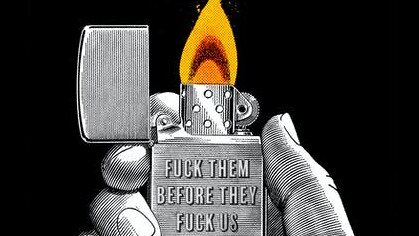The Committed, Viet Thanh Nguyen’s sequel 6 years in the waiting
In Viet Thanh Nguyen’s sequel to his Pulitzer Prize-winning novel, the narrator is faced with an impossible question.

Viet Thanh Nguyen’s masterful Pulitzer Prize-winning debut novel The Sympathizer charted the duplicitous exploits, dangerous adventures and crises of conscience of a man who, in his memorable opening words, is “a spy, a sleeper, a spook, a man of two faces.”
The unnamed communist protagonist, the bastard son of a French priest and a Vietnamese villager, leads a double life both as a captain in the South Vietnamese army in “this jackfruit republic that served as a franchise of the United States”, and as an exile in California. His story – or, to be exact, confession – begins with the fall of Saigon and culminates with his own collapse in a re-education camp, a brutal ordeal which leads him to re-evaluate himself as “a dreamer doped by an illusion”.
Six years on and Nguyen has written a sequel. The Committed (Corsair, 400pp, $32.99)
starts where The Sympathizer left off, with the narrator leaving Vietnam with other boat people and enduring thirst, hunger, storms and heat at sea. After a prolonged stay in a refugee camp he arrives in his father’s homeland in 1981 with Bon, his childhood friend and blood brother.
In Paris the pair embark on a life of crime working for two bigwig Chinese gangsters. The Boss and his equally ruthless “field marshal” Le Cao Boi run a drugs and prostitution outfit; a dubious eatery – “the worst Asian restaurant in Paris” – serves a front for their criminal activities. The narrator pledges his allegiance by getting his hands dirty: regularly cleaning the unspeakably filthy toilet in that establishment and then getting out and about selling hashish, collecting debts and settling scores.
It isn’t long before he worries that he is becoming the worst kind of criminal: “not a drug dealer, which was a matter of bad taste” but rather “a capitalist, which was a matter of bad morals”. These fears are then overshadowed by more pressing concerns. He is abducted, beaten up and forced to play Russian roulette by a rival mob. He suffers “premature emasculation” in a brothel. He is painfully aware that Bon, a staunch anti-communist, will kill him if he ever discovers he was a spy for the other side. And while he longs to be reunited with his old flame Lana, he dreads an imminent showdown with his former handler Man.
But what plagues him most is his reflection in the mirror. He is still a man of two faces but he is no longer sure what those faces represent.
“Was I revolutionary or a reactionary?” he asks himself. “And if I was a revolutionary, what did I believe in? To what was I committed? And was I myself or another?”
To a large extent, The Committed reads like a literary thriller, albeit one with added quirks. The narrator communes with ghosts from his past, including men he has killed. The villain has henchmen named the Seven Dwarfs (the most menacing of which is Lousy). And everyone has a penchant for a wonder-drug known only as “the remedy”.
However, as in The Sympathizer, Nguyen prioritises thoughts over deeds. When not prowling the city’s underbelly, the narrator is hobnobbing with his “aunt” and losing himself in philosophical debates with various writers, editors and critics at her salons. Some of these exchanges are stimulating, as are some of the narrator’s meditations, particularly when the line of inquiry revolves around current upheavals back in Indo-China or the relationship between France, the coloniser, and Vietnam, the colonised.
But there are moments where soul-searching comes across as navel-gazing, and intellectual discussion descends into what the narrator himself terms “theoretical barrage”.
In such instances, we look forward to a pacier, punchier scene powered by black humour, big ideas and captivating prose. For the novel is studded with them.
Granted, it lacks a standout set-piece on a par with the previous book’s extended segment in which the narrator flies to the Philippines to help out on a war film that bears an uncanny resemblance to Apocalypse Now.
But Nguyen impresses with his series of shorter sections, including a tense encounter with a hapless victim in a warehouse in “the crack between the city’s buttocks.”
It is here that the narrator receives a stark ultimatum – kill or be killed – while undergoing a pivotal epiphany, one which erases his existentialist doubts and finally makes clear what is important and how he should act.
The Sympathizer was more than just a compelling tale. It also altered the reader’s outlook on the Vietnam War by presenting it from a long-overdue Vietnamese perspective. The Committed doesn’t set out to reframe or redefine. The only outlook which is altered is that of the narrator. But Nguyen ensures that his hero’s journey to enlightenment is an absorbing one, a bumpy ride filled with drama and mayhem, hilarity and absurdity.
Malcolm Forbes is an Edinburgh-based writer and critic.



To join the conversation, please log in. Don't have an account? Register
Join the conversation, you are commenting as Logout